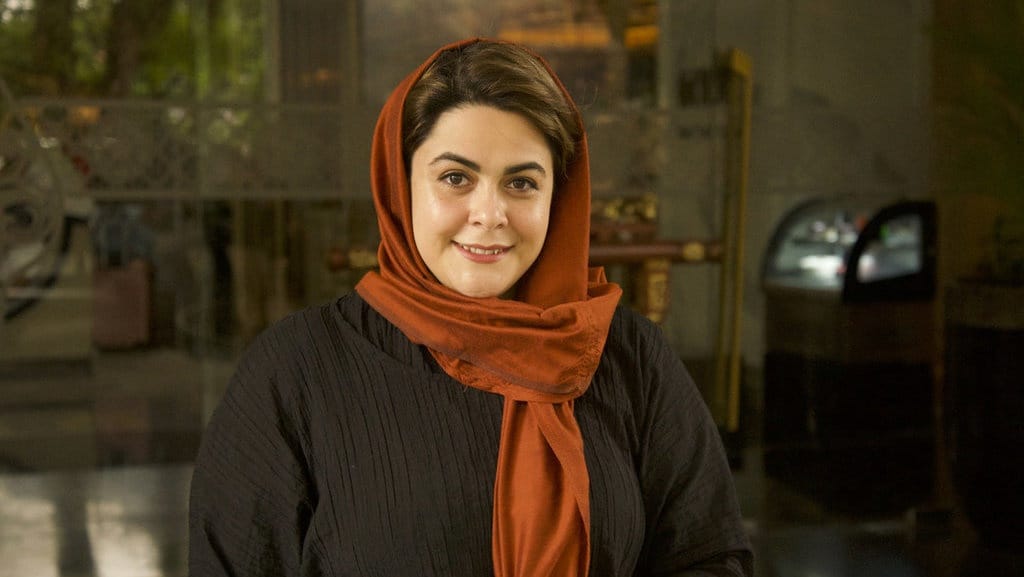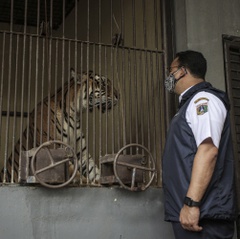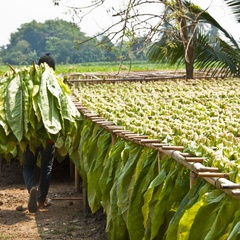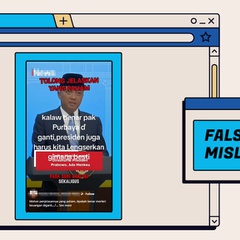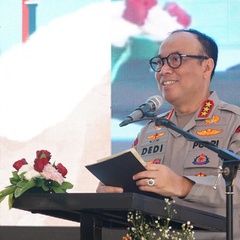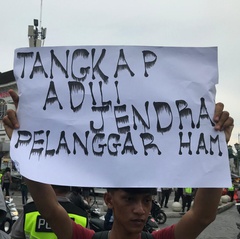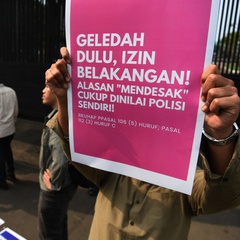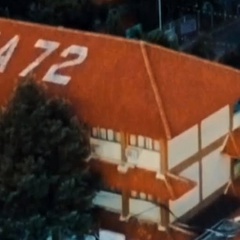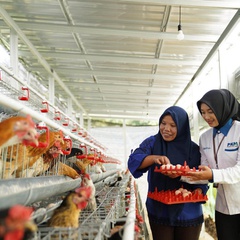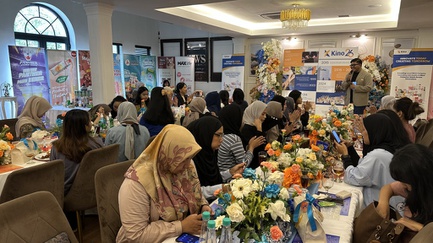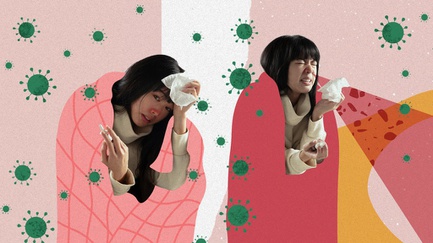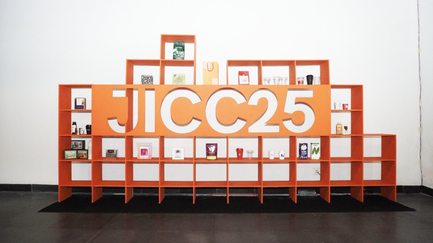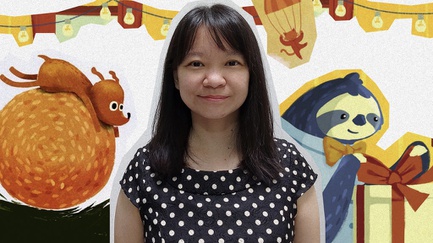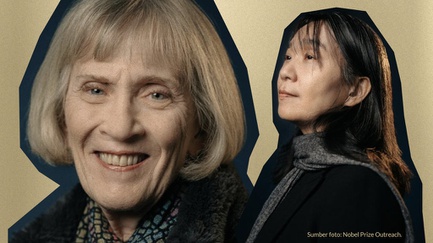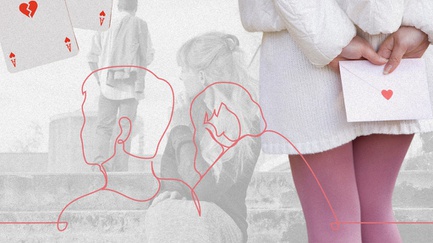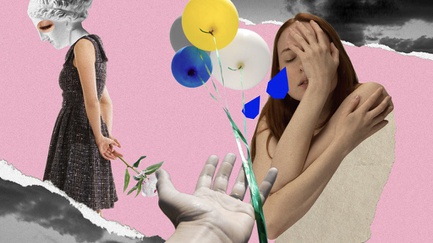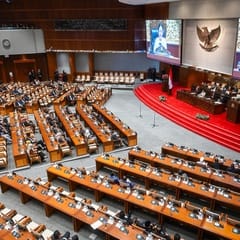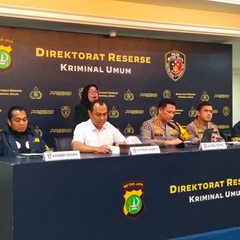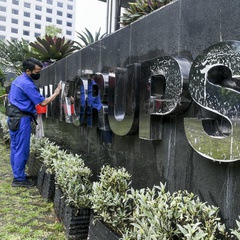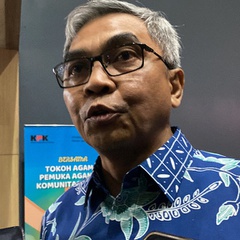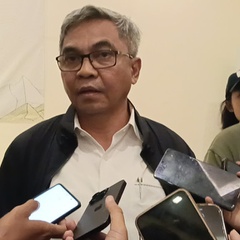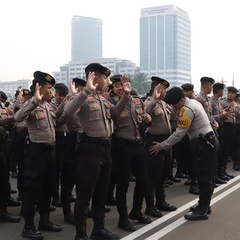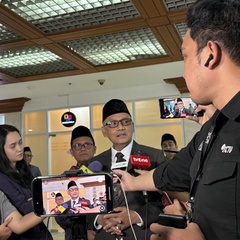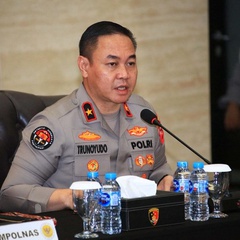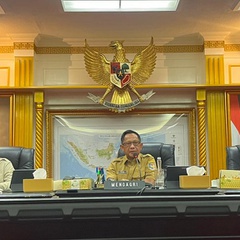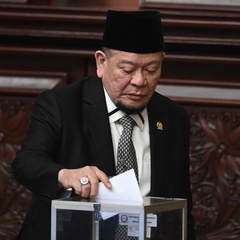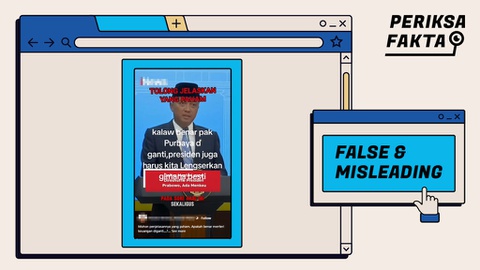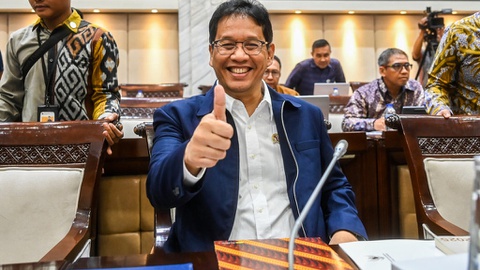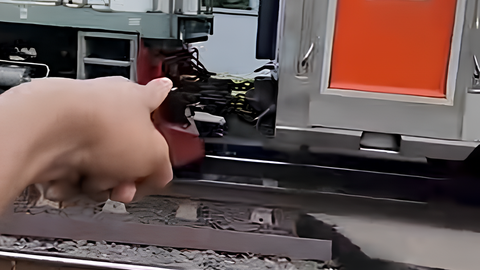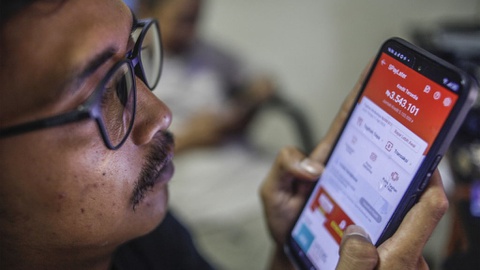tirto.id - “Whatever I tell my father, he doesn’t care. It’s as if they don’t care about me at all. They don’t think that it makes me sad. My mother got married and left to Tehran. And my father got a new wife.”
The monologue above is spoken with innocent candor by a young Iranian schoolgirl, Melina, in the documentary Grand Me (2024).
Her parents got divorced when she was just a 6-month-old baby.
Melina lives with her loving grandparents, Mama Ati and Baba Ati, in the city of Isfahan, a 5-hour car drive from the state capital Tehran.
She casually makes phone calls with both parents but seems to be more comfortable talking to her mother and wishes to be able to stay in her place.
As soon as Melina turned 9, she participated in a coming-of-age ceremony—known as taklif—a ritual Shiite Islam that marks the age of puberty.
Not only is she then required to observe religious obligations, such as praying, fasting, and wearing modest clothing, but she also gains the legal right to bring her custody case to court and request permission to live with her mother.
The rest of Melina’s journey reveals her strength as she expresses her thoughts and feelings while seeking her own answers within the complexities of modern Iranian family dynamics.
The mastermind behind the powerful delivery of Melina’s story is none other than her talented maternal aunt, Atiye Zare Arandi (34).
The Beginning of Filmmaking
Isfahan-born filmmaker Atiye has written and directed several short films, documentaries, and fictions, some of which have been featured at the International Cinema Verité Festival in Tehran.
She captivates audiences with her keen insight and creative storytelling, transforming the image of social documentaries.
Her latest work, Grand Me, focuses on complex family relationships and explores universal themes through the lens of Iranian culture.
The film, which has been selected for several international festivals, tells the story of Melina, a 9-year-old girl navigating the decisions of her divorced parents while searching for the meaning of a “true home.”
Grand Me is one of 25 films nominated for the Alternativa Film Awards and Festival 2024 by inDrive. The film won the Alter Award at the festival.
Last November, all film nominees, including five movies by Indonesian filmmakers, were being screened in the cultural hub of Yogyakarta, Indonesia.
Alternativa, which debuted last year in Almaty, Kazakhstan, celebrates professionals from emerging film industries by showcasing impactful films that combine artistic quality with the power to inspire societal change and reach wider audiences.
In an interview with Diajeng Tirto, Atiye shares how her interest in scriptwriting and filmmaking began during her early teenage years.
“My love for cinema began at the age of 15 when I joined a scriptwriting course. The first film we watched, 21 Grams, drew me into the world of cinema,” Atiye explains.
21 Grams (2003) is a thriller directed by Mexican filmmaker Alejandro González Iñárritu whose movies often explore challenging human conditions through interconnected stories and a nonlinear narrative.
Atiye has also drawn inspiration from the renowned Iranian filmmaker Abbas Kiarostami (1940–2016).
She considers one of his drama films, Khane-ye Doust Kodjast? (Where Is the Friend's House?, 1987), a favorite.
As a child, she admired the creative works of 73-year-old Iranian filmmaker Marzieh Boroumand, who specialized in teenage fiction and puppet movies.
“Boroumand’s films, such as Shahr-e Mooshha (The City of Mice, 1986), are part of my childhood memories.”
Atiye continues, “But what truly shaped my journey was participating in the Isfahan International Film Festival for Children and Youth. It was a place where we, as teenagers, served not only as jurors but also received training.”
The festival has been held annually since 1982.
“We were taken seriously and exposed to the dazzling world of cinema. This experience gave me a deeper understanding of filmmaking and made me feel like a real part of this fascinating world,” she adds.
Focusing on Human Relations
Through her works, Atiye aims to explore how relationships work between people.
“Now, after 15 years since my first film, I can confidently say that all my narrative and documentary works share a common thread: a deep focus on human relationships,” she says.
Atiye’s stories often centered on women, children, and teenagers, “These groups, with all their challenges and beauty, have always been at the heart of my scripts and films.”
The experience and feelings of Melina in Grand Me, according to Atiye, is common to find in any children of divorced parents in every culture, every society around the world.
“The concept of our story is to decide where our true home is,” Atiye says, “Through a long and challenging journey, Melina decides to find the safest place for her. In the end, she found the best home she’s ever had in her life, and finally accepted it.”
This documentary, which took two years to produce, aims to highlight Atiye’s message about parents’ responsibility to care for their children.
“Yes, married couples can get a divorce. Staying in an unhappy marriage filled with daily arguments might be even worse. It’s very unhealthy,” Atiye says.
However, Atiye emphasizes the importance of parents preparing both short-term and long-term plans for their children.
“Parents should carefully consider their separation or divorce and discuss it openly with their children,” she adds.
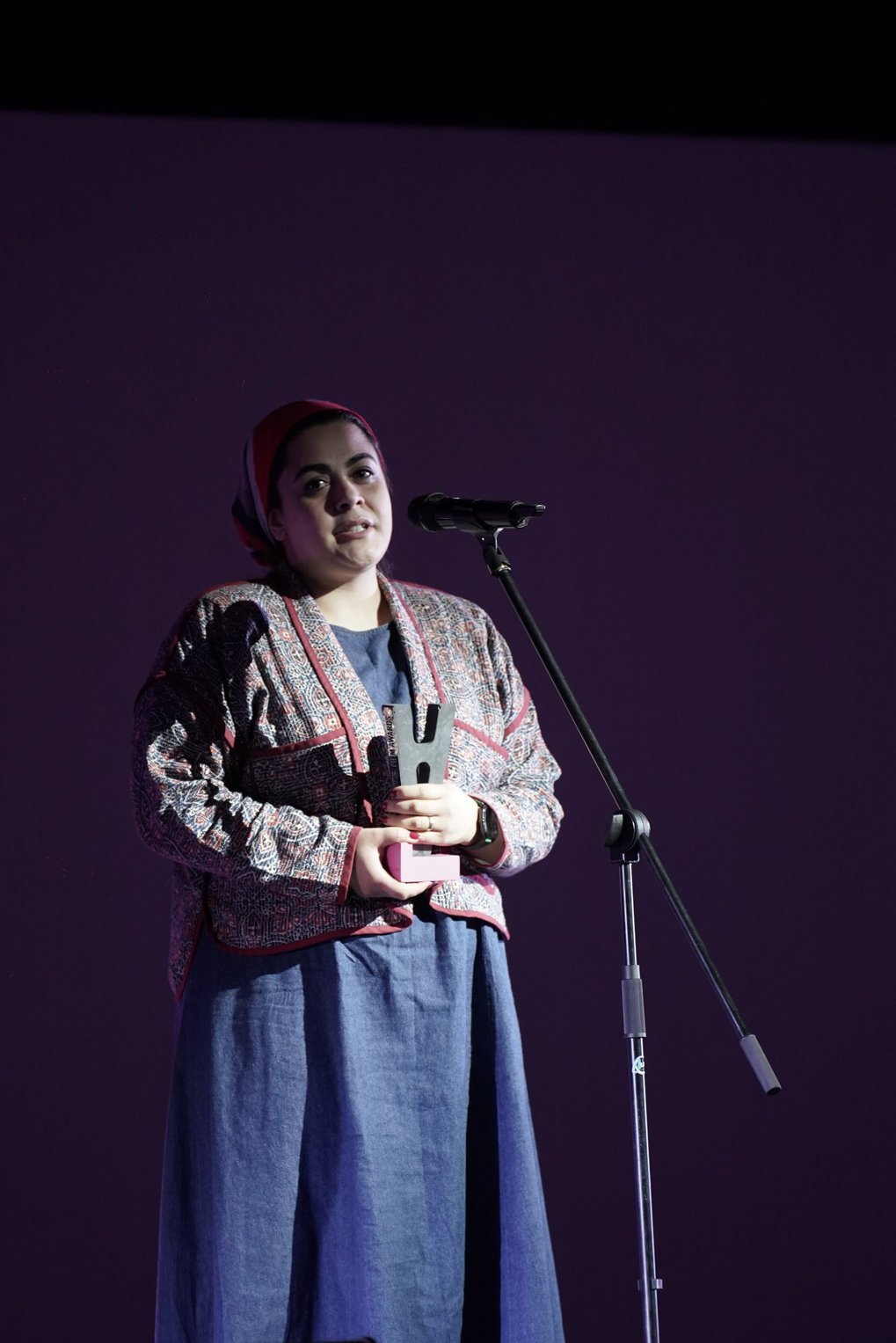
Challenging Stereotypes
Besides focusing on the topic of human relations, through her movies, Atiye wants to highlight her own personal point of view, as well as bringing up her culture and society.
Through Melina’s experiences, we can see how middle-class families in Iran live their lives.
“You can see what happens behind the closed doors in Iranian homes. The family concept is really important in Iran. Families are supportive of each other. Despite Melina’s parents being separated, she is being loved and taken care of well by the rest of our family.”
Atiye acknowledges that some film enthusiasts, including those in the film festival industry, often focus on the darker aspects of life as portrayed through the camera lens.
“At a festival, someone once asked me, ‘Do you really live in brick houses? Do you have furniture?’ This question revealed the misunderstandings some people still have about Iran,” she recalls.
“Yes, we experience social and political pressures, but that’s not the full story. Not all Iranian men are patriarchal or misogynistic. In our homes and within the depth of our social relationships, we’ve found a balance.”
In Grand Me, Atiye seeks to challenge these stereotypes.
Despite the absence of Melina’s biological father or her mother’s new husband, Atiye highlights two significant male characters: Melina’s grandfather, Baba Ati, and her uncle.
A beautiful scene shows Melina playfully coloring Baba Ati’s fingernails, while her uncle, or Atiye’s brother, is depicted as an understanding man whose wise judgment helps to calm the family situation involving Melina.
The Role of Women in Society and Cinema
Atiye believes that Iranian women hold the future of the country.
“Not only in cinema but in all areas of life, I see the significant and impactful role of women in our society,” she says.
“Women are often the driving force behind change. In cinema, for instance, we have many universities offering film studies, and interestingly, most of the seats in these programs are filled by women. This shows that Iranian women, despite all the challenges, are not just progressing but leading the way to a brighter future for themselves and their society.”
As a woman working in the male-dominated film industry, Atiye always strives to make things easier for herself.
“I’ve never believed that being a woman could hold me back. I’ve always trusted that with persistence and focus, any challenge can be overcome. This mindset has helped me focus on solutions rather than obstacles and continue moving forward.”
Editor: Nuran Wibisono
 Masuk tirto.id
Masuk tirto.id